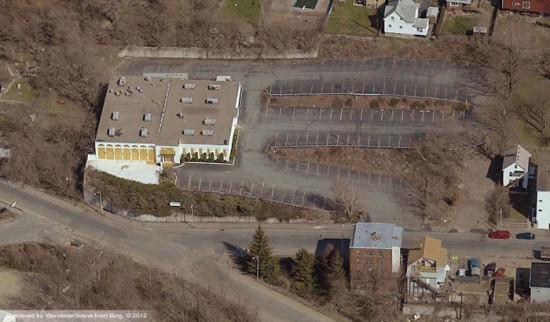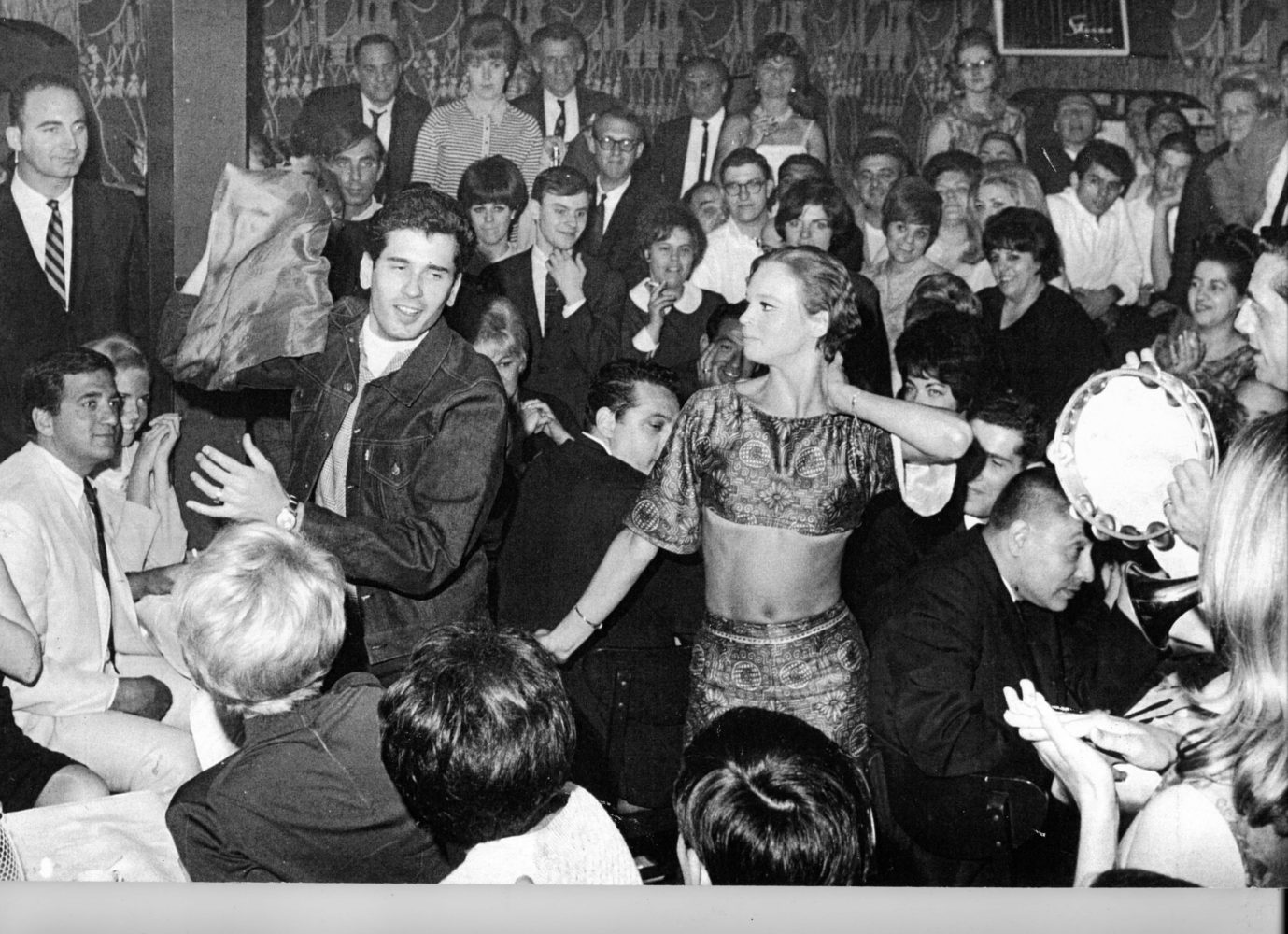
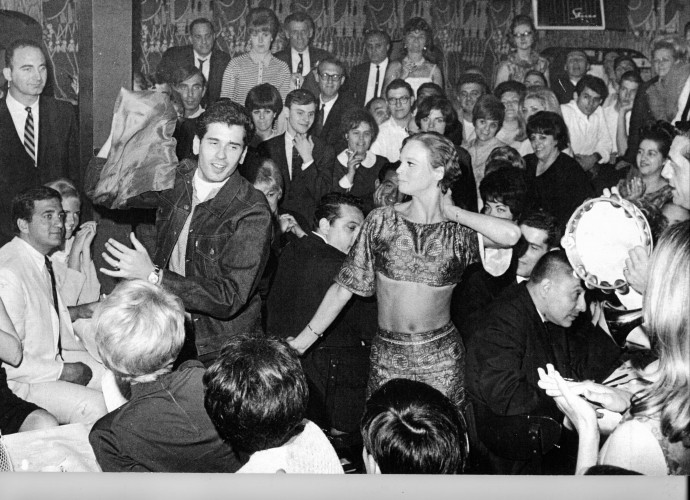
A misconception in business is the assumption that expanding a successful enterprise will proportionately grow its success. Often business owners fail to properly analyze the factors that contributed to the initial success and how these factors will translate during expansion. While the glamor of expansion is tempting, it can often be fatal. In this edition of “Worcester Throwback,” we will pay homage to one of Worcester’s most celebrated, legendary restaurants and suggest how expansion may have been El Morocco’s fatal flaw.
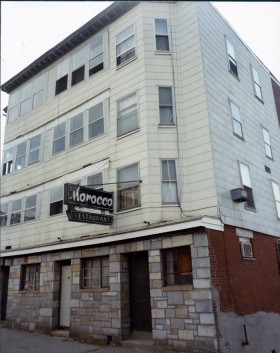
Coming from Lebanon, Paul Aboody and his father, Ayoub Addoubi, settled on “French Hill” (today’s Grafton Hill) in Worcester to practice tanning. Observing the community of French Canadians and Lebanese, Paul, from a young age, understood ethnic loyalty. Although he fell in love with Helen, the daughter of the Kalil family—owners of one of America’s first Syrian bread bakeries—her family brushed him aside as a rough Marlon Brando type. Wooing her heart and breaking tradition, Paul and Helen eloped. Starting their family in a house purchased on Norfolk Street, the Aboodys had nine children: Paul Jr., Grace, Naphie, John, Richie, Joseph, Adele, Marion, and George—who died as a child in a freak accident.
Always looking for ways to support his family, Paul worked at Wyman-Gordon during the day and unsuccessfully opened several coffeehouses to sell coffee and pastries. After an accident at Wyman-Gordon, Paul, with a broken foot, decided to open another coffeehouse. In 1943, Paul purchased an old barbershop at 73 Wall Street for $600 and opened a three-table restaurant on the first floor of the triple-decker, known as the El Morocco. While this coffeehouse sold pastries and sweets for the children of the neighborhood, its success would be attributed to Helen’s work in the kitchen serving traditional Lebanese specialties—the first restaurant in Worcester to offer Middle Eastern cuisine. Within the first year, the El Morocco generated nearly $9,000 in sales with items like steak ($2.25) and lamb mishwee ($1.35).
Due to the restaurant’s warm and welcoming atmosphere, this small eatery, with a handful of tables and a potbelly stove, embodied an old-world charm with traditional food. With the entire Aboody family now working the restaurant, El Morocco became the kitchen of the neighborhood where everyone truly knew your name, your family, and what you liked to order. With a brown-bag policy, it was common that patrons would come with their own beer and wine to eat, drink and party until 5:00AM. The restaurant’s popularity grew, being fueled by the live jazz entertainment that drew notable musicians and entertainers near and far—like later from the the Centrum (now known as the DCU Center). The El Morocco quickly became the center of Worcester’s social scene, including having Thursdays in Worcester came to be known as “Meat Pie Day” because of Helen’s weekly meat pie specials. To keep up with the popularity, the Aboody family dug out a 20’x60’ basement in 1945 allowing seating for an additional 85 people. Recognizing the gem they had, Paul purchase a property across the street on August 13, 1948 for $1,684.
When celebrities would ask for a lively after-hours scene, they would be taken to El Morocco and often, after visiting the establishment only once, would return the next time they were in Massachusetts. The reputation of the El Morocco for being an active night spot, brought the likes of Al Pacino, Wayne Newton, Harry Belafonte, Nat King Cole, Dustin Hoffman, Dizzy Gillespie, the Beach Boys, Abbie Hoffman, Neil Sadaka, Bette Midler, and Rodney Dangerfield—many performing, impromptu, with the jazz band on stage.
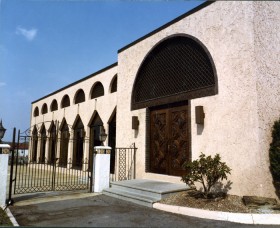
Fueled with the sudden growth of revenue in 1976 with the restaurant’s new liquor license, the decision was made to expand to the location Paul had purchased in 1948. On December 10, 1977, the new El Morocco opened their doors to a crowd of 5,000 people eagerly waiting to go to the restaurant, nightclub, on the hill overlooking the city—described by Rodney Dangerfield as, “a great view, if only there was a view.”
The new expanded El Morocco never quite captured the magical aura of the old El Morocco. Although it was magnificent, large, swanky, and continued to house jazz bands from as far as San Francisco, the late night parties slowed down, as did the regular appearance from celebrities.
After the passing of Paul, Sr. in July of 1983, turmoil between the siblings began to affect the day-to-day operations of the restaurant and resulted in the first suit being filed alleging mishandling financials in 1988. Even though in 1992 the restaurant recorded revenue breaking the $1 million mark, the restaurant soon sought bankruptcy protection after more sibling arguments ensued between John, Grace, and Naphie.
Quickly spiraling out of control, on September 23, 1993, the 200 seat dining room and night club was assessed at $700,000 but in March of 1994, the building and land were sold for $350,000 to Louis C. Terricciano and his son, Mitchell A Terriccino, with an agreement to let the Aboody family continue to operate the restaurant. Seemingly cursed, the restaurant was unable to gain steam again and was again sold at auction in July 1994 for $335,000 effectively ending the legacy of Aboody’s famed El Morocco.
Issues would continue to plague the property until May 1999 when, then owner John F. Gallagher said he would reopen the landmark without the Middle Eastern cuisine and belly dancers—a concept which “had grown passé.” Offering a new jazz series, the building at 100 Wall Street seemed to be breathing a new life as Il Palazzo opened in January 2000. The then hopeful restaurant and nightclub had one final set-back in May of the same year when the manager, Anthony Caggianelli, was shot and killed during an attempted robbery—Worcester would be involved in the resulting lawsuit until 2010. The building was again foreclosed upon in July 2001 where it has sat empty since and has stayed out of the spotlight until 2008 when a plan to replace the building with a 6-story apartment complex, called “City View” would be met with residential opposition.
The original El Morocco, where the fame and legacy was born, was demolished in April 2003 with the surviving members of the Aboody family standing by watching the memories come down with each brick. A business that was so successful it had to expand was now reduced to rubble with the family still owing back taxes on the business and having to pay the demolition lien after the building came down.
It is tempting to see a successful business grow. In Worcester, the restaurant and nightlife scene has grown rapidly within the past 10-15 years. With restaurants and bars that rival many NYC establishments, it’s important that these businesses are able to understand the details causing their success and ensure that any expansion plans slowly nurture these details. Often the glamorous ideas of expansion overlook the logical steps to continued success. In the case of the El Morocco, the expansion lost the aura of what made the business thrive, without this aura and—as some could argue, mismanagement of financials—the business’ expenses were too great to sustain what was once called the life of Worcester, the legendary El Morocco.
Editor’s Note: The demolition of the “new” El Morocco began mid-March 2016 and we’re sorry to hear of the passing of Paul Aboody, Jr. just two months later.
The old El Morocco bites the dust #Memories pic.twitter.com/aDnAKAnmG5
— Worcester Magazine (@worcestermag) March 23, 2016

